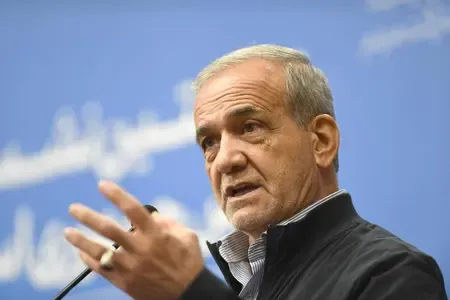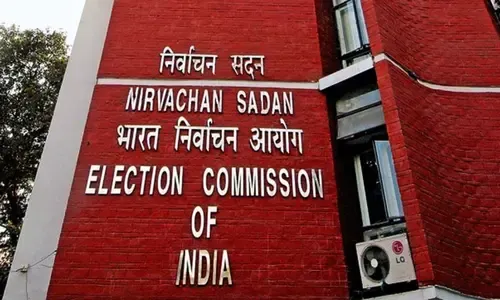Is Iran Ready to Mediate in the Pakistan-Afghanistan Conflict?

Synopsis
Key Takeaways
- Iran expresses readiness to mediate between Pakistan and Afghanistan.
- Recent talks ended without agreements, highlighting ongoing tensions.
- Pakistan insists on action against the TTP as a precondition for peace.
- Regional cooperation is essential for addressing security challenges.
- Experts warn of destabilization risks if the stalemate continues.
Tehran, Oct 28 (NationPress) Iranian President Masoud Pezeshkian on Tuesday conveyed Tehran's willingness to act as a mediator between Pakistan and Afghanistan in order to assist in addressing their ongoing conflicts, according to local media.
Pezeshkian's comments came during a meeting with Pakistan's Interior Minister Mohsin Naqvi at the 4th ECO Interior Ministers Meeting held in Tehran. The Islamic Republic News Agency (IRNA) reported on this meeting.
He highlighted the importance of reducing tensions and avoiding conflicts within the region, reiterating Iran's commitment to resolving disputes between the two nations. He further stated, "Now, more than ever, it is crucial for Muslim nations to stand united in solidarity against shared adversaries."
The Iranian President's remarks follow a recent round of discussions between delegates from Pakistan and Afghanistan in Istanbul, which ended without any positive outcomes, with mediators pointing to various disagreements that obstructed a consensus on security matters.
The discussions, which spanned three days, did not result in any progress, despite regional mediation attempts. Mediators acknowledged that the two countries' positions remained significantly divergent due to differing expectations and priorities. This lack of alignment hampered officials from achieving any advancement during the negotiations, as reported by Khaama Press, referencing a report from Geo News.
Pakistan has emphasized that taking action against the Tehreek-e-Taliban (TTP) and preventing the group's fighters from finding refuge in Afghanistan are critical conditions for any agreement. Islamabad views the TTP insurgency as a direct threat to its national security.
Experts assert that the unsuccessful talks reflect a deep-seated mistrust between the two countries and highlight the challenges of addressing cross-border militancy. They warn that a prolonged stalemate could jeopardize stability in both nations.
Following border skirmishes, Islamabad has warned that it will persist in conducting military operations within Afghan territory if TTP attacks continue. Security officials have emphasized the necessity of decisive action to safeguard both civilians and military installations along the border.
The inaugural round of Pakistan-Afghanistan discussions, jointly facilitated by Qatar and Turkey, took place in Doha on October 18-19.
As both delegations reconvened in Istanbul for the second round of peace talks, Pakistan's Defence Minister Khawaja Asif maintained an aggressive stance, warning Kabul of an "open war" should negotiations collapse.
Pakistani media reported that Islamabad is also seeking the establishment of a "third-party oversight structure," potentially co-chaired by Turkey and Qatar, to monitor progress and address any instances of non-compliance.










